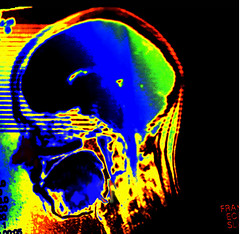Friday, July 24, 2009
HRA & National Health Care Revisited - Costs
►The bill includes a new tax starting at $280,000 of income. If that tax doesn’t generate enough revenue to cover the government’s costs by 2013, the tax automatically doubles. Don't you wish you could do that with your income?
►This tax is negative to small biz because their biz income is their personal income.
Will higher taxes force job loss, less capital investment, or perhaps shutting down the business?
► If you make less than $280,000 per year, section 401 of the bill includes a tax on individuals without acceptable health care coverage. Don't have ‘approved’ health insurance? Shut up and pay the tax!
►The bill also includes a new “fair share” tax to pay for a federal health board. These political appointees will be deciding if you need the new hip or knee or heart valve or… you fill in the blank. Oh yes, it will not be your doctor! Far fetched? Ask a Brit.
► The bill requires individuals to buy health insurance. That’s when you find out the definition of 'approved' health insurance!
►Big business must buy the government-approved insurance for their employees. At over $11,000 per year, that may be the straw that breaks the business financial backbone. If not, you know those ‘evil business owners' will figure some way to save money to pay the bill. Layoffs? Oh yeah...if they don’t buy then they will pay a new payroll tax of 8%.
►The bill establishes a government-run health plan that will undercut the private market and force people to lose their private health insurance. It would be like medicare for everybody and would not operate on the same legal and economic basis as private health insurance companies must.
►Could employers see that as their way out? Could they simply cancel the current group plan and send all employees to the government plan? Isn't that the real motivation of the national health plan?
►Oh yes, lest I forget, you need to know that it won’t apply to members of Congress, who will keep their top of the line health plan.
All right. That’s enough. I’ve just ruined my weekend… I don’t want to ruin yours!
Wednesday, July 22, 2009
HRA & National Health Care Bill Analysis
Problems in Health Care Bill HR3200-
Although I’ll continue my analysis of the health care bill, for this entry I am restricting my comments to:
Any provisions that would effectively eliminate our freedom to choose health insurance coverage, cost sharing (deductible, co-pays, and co-insurance). President Obama has said and is still saying that “you can keep the coverage that you have.” However, what he is not saying is for how long we can keep it.
Well….. let’s just check that out!
SEC. 102. PROTECTING THE CHOICE TO KEEP CURRENT COVERAGE.
(a) Grandfathered Health Insurance Coverage Defined- Subject …the term `grandfathered health insurance coverage' means individual health insurance coverage that is offered and in force and effect before the first day of Y1 (first year after passage of the law) if the following conditions are met:
(1) LIMITATION ON NEW ENROLLMENT-
(A) IN GENERAL- Except as provided in this paragraph, the individual health insurance issuer offering such coverage does not enroll any individual in such coverage if the first effective date of coverage is on or after the first day of Y1.
My Opinion: This means that the insurance company cannot add new clients to its list of customers. The result of this provision would be that the insurance company would have an increasing group of clients who are aging and whose medical costs increase year by year. With no new client premiums it would crash. Sounds like medicare’s future doesn’t it?
The dirty truth is that an insurance company faced with that future would liquidate while they still have assets to distribute to their stockholders thus forcing all policy holders into the national health plan. So much for keeping what you have!
Competition and choice would be further eliminated because an individual policy holder could not shop around for a better plan in terms of coverage or premium or both! Again, not a good deal.
(2) LIMITATION ON CHANGES IN TERMS OR CONDITIONS- Subject to paragraph (3) and except as required by law, the issuer does not change any of its terms or conditions, including benefits and cost-sharing, from those in effect as of the day before the first day of Y1.
My Opinion: This mean that all changes would invalidate the ‘grandfathering’. Not a good deal. For example take a single male who did not buy maternity coverage for obvious reasons then got married and wanted that coverage. Or, take a young family whose budget was stressed and took a low deductible and 100% coverage. Then later in life when they prospered and were healthy wanted to save premium dollars by selecting a higher deductible and 80% coinsurance. That change would invalidate 'grandfathering'.
(3) RESTRICTIONS ON PREMIUM INCREASES- The issuer cannot vary the percentage increase in the premium for a risk group of enrollees in specific grandfathered health insurance coverage without changing the premium for all enrollees in the same risk group at the same rate, as specified by the Commissioner.
My Opinion: This provision was written by someone who thinks all health insurance benefit plans are exactly the same. That isn’t even close to being factual. It would be nearly impossible for an insurance company to comply with this restriction because of the variation of benefits within a specified risk group. Policies do not have the same coverage benefits (some include maternity, dental, vision, and some have special care for heart attack, cancer, …etc).
Finally, what makes our current distribution system great is that a healthy family can shop each and every year for the best rate and coverage selection available to them by multiple insurance companies.
This option is fully available for individual policy holders under the HRA.
Monday, July 13, 2009
Uninsured Statistics & the HRA
1. 17 million lived in households earning $50,000 or more…. obviously could buy health
insurance if they chose to do so and,
2. 50% of non-elderly people who were uninsured regained their health insurance within
four months and,
3. 30% remained uninsured for more than 12 months.
References:
1. (http://www.census.gov/prod/2006pubs/p60-231.pdf )
2. (http://www.aspe.hhs.gov/health/reports/05/uninsured-cps/ib.pdf)
3. (http://www.heartland.org/policybot/results.html?artID=16014)
The second reference also found:
1. 21% are below age 18
2. 63% are under age 34
3. 21% are non-citizens
Prior to believing any stats that the proponents of national health care put forth, it makes sense to verify their usage.
Are they intended to inform or mislead?
Within the HRA nearly 52% of those uninsured could easily obtain their own health insurance. Why? Because the individual health policy is rated on age and health. A young person looking at the costs under the employer-paid benefit sees a premium cost of nearly $500 per month. That is disposable income. How would spending that money for health insurance stack up against… renting a BMW or payments on a 51 inch high def flat screen tv?
The average cost for an individual health policy under the HRA for the 18-34 demographic would be about $200. An employer is a lot more likely to participate at that level but even if not it is still less expensive precisely because it is age rated not marital status rated!
Once again the HRA is a winner!
Thursday, July 9, 2009
HRA Benefits Chiropractic
When he learned that the HRA reimbursement could be used for approved medical expenses including chiropractic he quickly saw that the insurance company cap wouldn't prevent the patient from using the balance of the HRA reimbursement for chiropractic treatment modalities. Since Dr Fullmer is also deeply involved in natural treatment modalities he saw how the HRA could benefit his patients there too.
Indeed the HRA flexibility is one of its best features. This same flexibility also places the buying power in the hand of the patient. This indeed will reduce costs since the patient is now part of the medical decision-making loop.
For more information on the HRA visit our website http://www.pahealthteam.com
Wednesday, July 8, 2009
Tire Kicking, Brain Picking, Time Wasters
 Image by alles-schlumpf via Flickr
Image by alles-schlumpf via Flickr
Yesterday I read a blog by Catherine Lockey “Business Predators”. (http://www.cyclonemarketing.info/?p=169). It is an insightful presentation well reasoned and well said. It was especially poignant for me as I recalled an appointment with one of her characters. His name, Mr. Terrible McMiserable.
He was controlling. His desk sat on a platform whereas my chair did not! So he literally towered over me by at least 12 inches. Talk about a power trip. He fired questions like a prosecuting attorney going for the kill. His questions were well rehearsed and random both in topic and volume. For example he quietly asked about my service and then immediately followed with a bellowed, “Why are you wasting my time?” Since he’d invited me to visit with him I wondered whose time was being wasted.
He didn’t want to learn about me or what I could provide his business. He only wanted my materials. Why? To give to my competitor! He arrogantly said so. “If you want my business you’ll do it on my terms. I want a friend to review your materials with an unbiased eye. By the way he is your competitor.”
While I don’t mind competition, I do mind educating my competition… unless there is a substantial matriculation fee. Thanks Catherine for a needed reminder.
Saturday, July 4, 2009
HRA - Another Independence Day
 Image via Wikipedia
Image via Wikipedia
Group health insurance has frustrated small business because it just keeps presenting more and more problems. Oh sure, the cost is nearly preventing profits but what is even more pressing is the feeling that "nothing can be done".
The HRA solution not only creates the profit possibility but it provides a much needed alternative to employer-sponsored-group health insurance. It is an alternative that is so flexible that the power resides with the employees relative to their own health care.
The many different coverage options, deductibles, co-pays, and costs are in the hands of the employee. Additionally, the choices of medical service providers will definitely generate competition which will lower costs and improve results.
Yep.... I like this work. I just quoted a trucking company. The HRA saves over $6000 per month in premium costs.
That makes it very worthwhile.
HAPPY INDEPENDENCE DAY!! Re-read your Declaration of Independence and your constitution. Also, read what our founding fathers said and did. Inspiration is a word... but it does not due them justice.
![Reblog this post [with Zemanta]](http://img.zemanta.com/reblog_e.png?x-id=89df2650-3e88-45b3-92e4-4f4a62302748)
![Reblog this post [with Zemanta]](http://img.zemanta.com/reblog_e.png?x-id=0ca747b0-aac0-4596-9f64-90b3fc7ec42f)
![Reblog this post [with Zemanta]](http://img.zemanta.com/reblog_e.png?x-id=9645200f-f248-45db-935d-c36d480db4e0)
